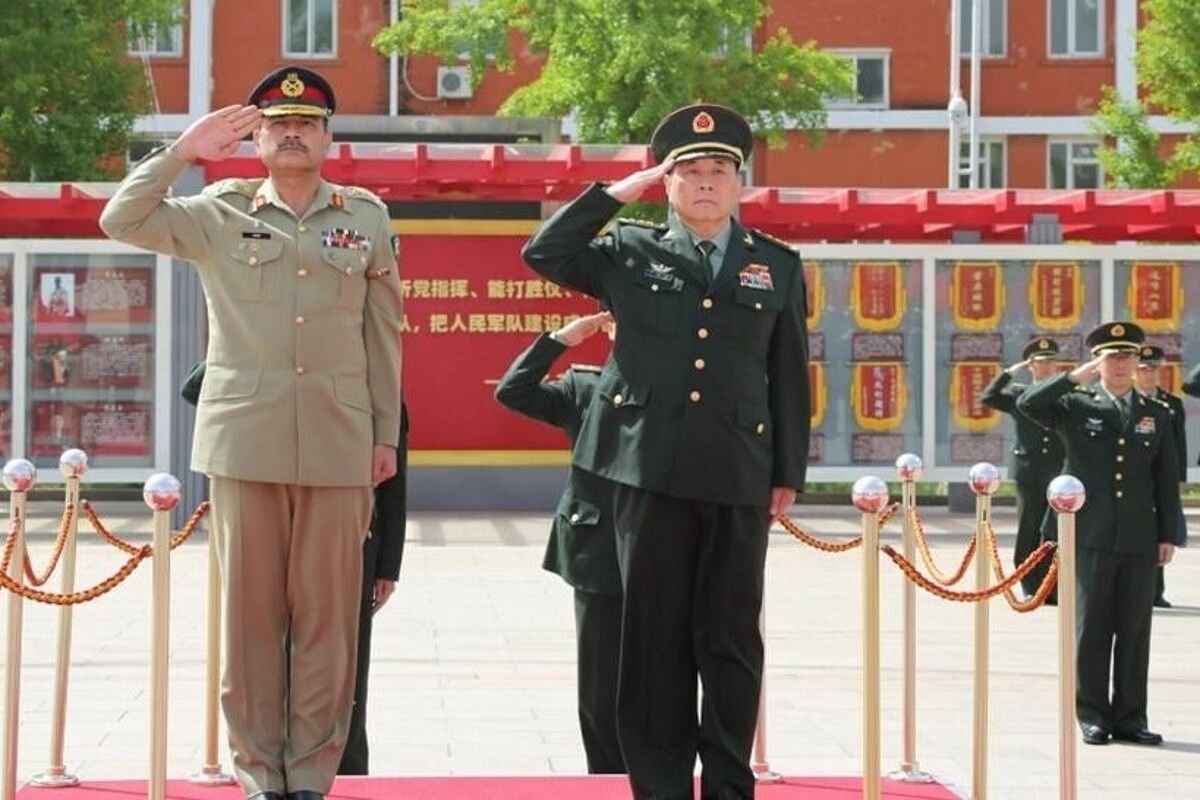News Brief
'Defender Of Stability': China's New Title For Pakistan Army Sounds Like A Name Straight Out Of Marvel Cinematic Universe

Pakistan’s Army Chief General Syed Asim Munir is on his maiden visit to China. (ISPR)
"Defender of stability" may sound like a name straight out of the Marvel cinematic universe, but it's not.
The Chinese Foreign Minister, Qin Gang, used this term to describe the Pakistan Army just three days before the arrest of former prime minister Imran Khan.
However, despite recent protests and political crisis following Khan's arrest, China has not made any official statement yet.
According to a report by the Hindu, China's silent attitude could be seen as tacit approval of the recent arrest of Khan, which may reflect its broader approach toward Pakistan that relies heavily on the military establishment.
Following the detention of Khan, protests have erupted in various parts of Pakistan, resulting in the vandalisation of several military establishments, including the Pakistani Army Headquarters in Rawalpindi and the residences of corps commanders.
China's support for Pakistan's army was demonstrated by recent meetings between the Chief of Army Staff, Syed Asim Munir, and China's top diplomats.
Munir, who is among the few foreign military chiefs to hold formal meetings with China's top diplomats, also met with China's Foreign Minister, Qin Gang, just three days before the arrest of Khan while attending trilateral talks with Afghanistan.
During the meeting in Beijing on 27 April, the Pakistan Army chief met with Wang Yi, a Politburo member and top diplomat who serves as Director of the Communist Party's Central Commission for Foreign Affairs.
Wang described the Pakistan Army as a loyal defender of Pakistan's 'national security and stability', as well as a steadfast defender of the "ironclad" friendship between China and Pakistan.
Wang's remarks suggest an inclination of China's strategic community toward the army rather than over the civilian elected governments.
This is especially relevant in light of the priority placed on ensuring the safety of Chinese personnel in Pakistan, as frequently emphasised by top officials such as President Xi Jinping, given the persistent threats against them.
While in Pakistan, Qin stressed “that stability is a prerequisite for development, and security the foundation of strength and prosperity.”
He said that China “sincerely hopes that all political forces in Pakistan will build up consensus, maintain stability, respond more effectively to domestic and external challenges, and pool efforts to grow economy and improve people’s livelihood.”
The United States and United Kingdom have also refused to take part in the blame game. The US State Department said that they are aware of the arrest of Khan, and the US government does not have a position on one political party candidate or another.
"We are aware of the arrest of the former Pakistani prime minister and, as we have said before, the United States does not have a position on one political candidate or party versus another,” the US State Department said.
While the United Kingdom's Prime Minister, Rishi Sunak, termed the arrest of Khan as an internal matter of Pakistan, they are monitoring the situation closely.
Sunak said, “The arrest of the former prime minister [Imran Khan] is an internal matter for Pakistan. We support peaceful democratic processes and adherence to the rule of law, and we are monitoring the situation carefully.”
Introducing ElectionsHQ + 50 Ground Reports Project
The 2024 elections might seem easy to guess, but there are some important questions that shouldn't be missed.
Do freebies still sway voters? Do people prioritise infrastructure when voting? How will Punjab vote?
The answers to these questions provide great insights into where we, as a country, are headed in the years to come.
Swarajya is starting a project with an aim to do 50 solid ground stories and a smart commentary service on WhatsApp, a one-of-a-kind. We'd love your support during this election season.
Click below to contribute.
Latest